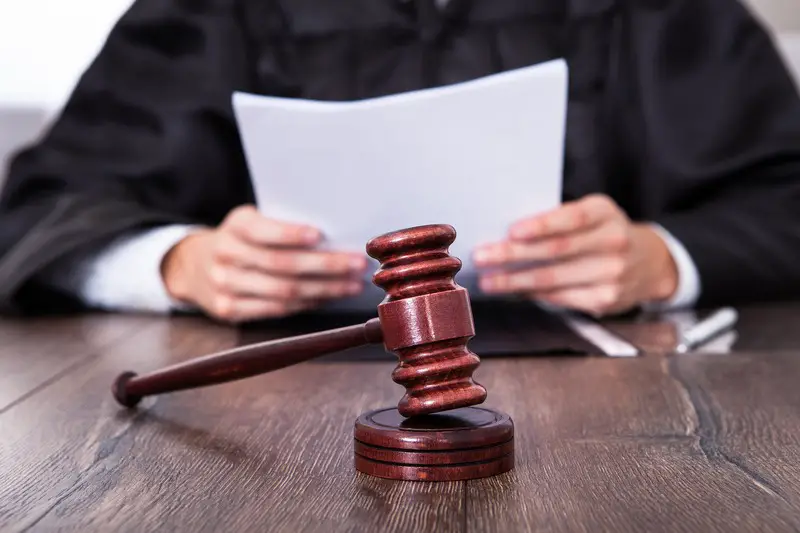A three-judge panel from the Ninth Circuit Court of Appeals delivered a unanimous decision Thursday evening, June 19, that allows President Donald Trump to maintain control of California National Guard troops deployed to Los Angeles, dealing a significant legal setback to Governor Gavin Newsom’s challenge to the federal deployment.
The ruling overturns U.S. District Judge Charles Breyer’s temporary restraining order from June 12 that would have returned control of approximately 4,000 California National Guard troops to state authority.
The appellate panel, consisting of two Trump appointees and one Biden appointee, concluded that Trump acted within his legal authority when he federalized the Guard under Title 10 statutes.
Judge Mark Bennett, writing for the panel, determined that the Trump administration presented sufficient evidence to justify the deployment, citing instances where protesters threw concrete blocks, bottles and Molotov cocktails at federal officers during demonstrations in Los Angeles. The court noted that federal officers had been pinned down by protesters who also vandalized federal property during the unrest.
Trump deployed the troops through a presidential memorandum on June 7, invoking rarely used federal statutes that permit presidential mobilization of National Guard forces during times of invasion, domestic rebellion, or when the federal government cannot execute its laws with regular forces. The deployment marked the first time since 1965 that a president activated a state’s National Guard without the governor’s consent.
The appeals court rejected the Trump administration’s most expansive legal argument that presidential decisions to federalize National Guard troops are completely beyond judicial review. However, the judges emphasized that their review must be highly deferential to presidential authority in such matters, following longstanding legal precedent dating to the early 19th century.
Trump celebrated the decision on his Truth Social platform, describing it as a victory on presidential core power to call in the National Guard. He indicated the ruling extends beyond California, suggesting he may consider federalizing state National Guard troops elsewhere if local police prove unable to maintain order.
Governor Newsom expressed disappointment with the ruling but noted that the court rejected Trump’s claim of unreviewable presidential authority. He emphasized that “the President is not a king and is not above the law” and vowed to continue challenging what he characterized as authoritarian use of military forces against citizens.
California Attorney General Rob Bonta indicated the legal battle remains far from over, maintaining confidence in the state’s arguments while acknowledging disappointment that the court did not provide immediate relief for Los Angeles residents. The state retains options to request a full appeals court rehearing or appeal directly to the Supreme Court.
The deployment originated from Trump’s response to protests following aggressive Immigration and Customs Enforcement raids across Los Angeles earlier this month. The federal action included not only the 4,000 National Guard troops but also 700 active-duty Marines, bringing the total military presence to approximately 4,700 personnel.
Los Angeles Mayor Karen Bass had imposed a weeklong downtown curfew following the deployment, but subsequently eased and then lifted the restrictions as tensions decreased. Local officials maintained that existing law enforcement agencies possessed adequate capacity to address the unrest without federal military intervention.
The appellate decision addressed several technical legal arguments, including California’s contention that Trump violated statutory requirements to issue orders through state governors. The court determined that directing orders to the adjutant general of the California National Guard, who operates under gubernatorial authority, satisfied the statutory requirement.
Legal scholars noted the decision reflected the courts’ traditional deference to presidential authority in national security matters. The ruling emphasized that while presidential power over National Guard deployment is not unlimited, courts must apply especially deferential review standards when evaluating such decisions.
The case now returns to Judge Breyer, who conducted a hearing Friday, June 20, regarding California’s request for a preliminary injunction. This hearing addressed whether the military deployment violates the Posse Comitatus Act, which generally prohibits using military personnel for civilian law enforcement.
The litigation continues on multiple legal tracks, including the appeals court case subject to further appeal, Friday’s preliminary injunction hearing, and eventual full trial proceedings on the merits. The timeline suggests that even if California ultimately prevails, the 60-day deployment period specified in Trump’s original order could expire before final resolution.
A group of former military service secretaries and four-star commanders filed supporting briefs backing Newsom’s legal challenge, arguing that military deployment on domestic soil should meet standards of being rare, serious and legally clear. The current situation represents the most significant federal-state conflict over National Guard authority in nearly six decades.











